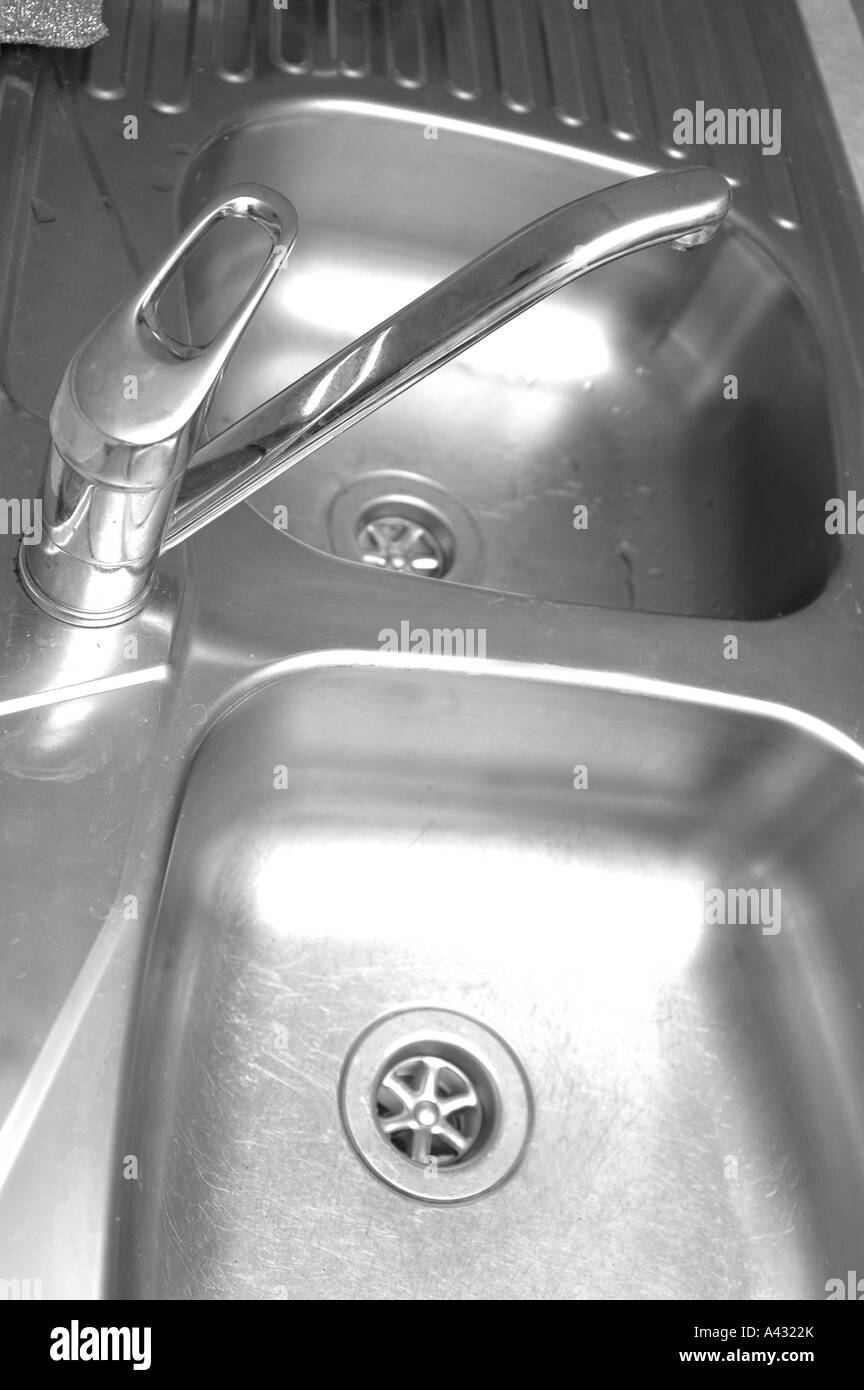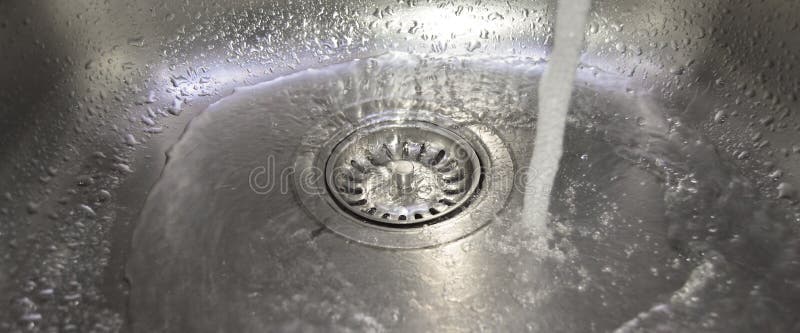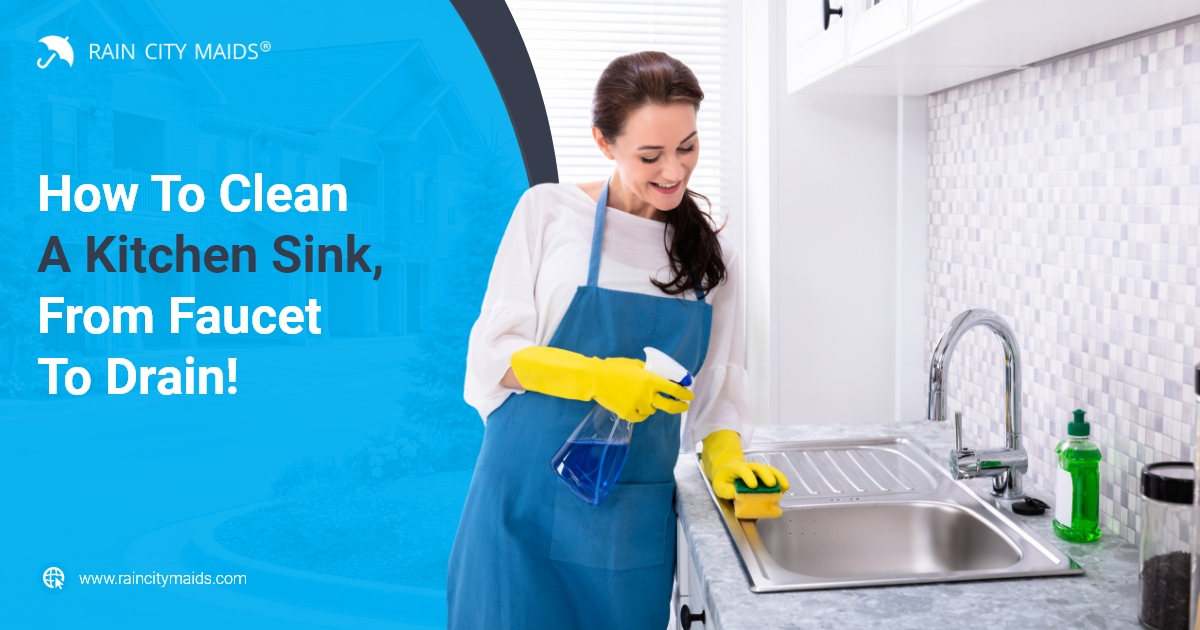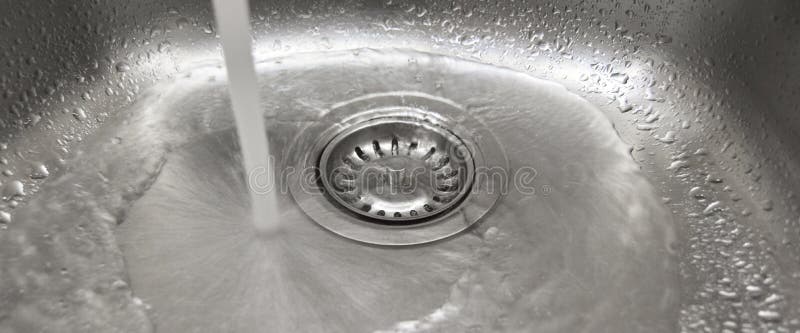If you've noticed sewer water backing up into your kitchen sink, you're probably feeling a mix of frustration and disgust. But don't panic, this is a common issue that can be fixed. Here are some steps to take to get rid of that stinky problem. Step 1: Identify the Source The first thing you need to do is determine where the sewer water is coming from. Is it just in your kitchen sink or is it affecting other drains in your house as well? If it's just your kitchen sink, the problem is likely in your kitchen's plumbing. If multiple drains are affected, the issue may be in your main sewer line. Step 2: Check for Clogs In most cases, sewer water backing up into your sink is caused by a clog in your pipes. To check for a clog, use a plunger to try and clear it. If that doesn't work, you may need to use a drain snake or call a plumber for assistance.How to Fix Sewer Water in Kitchen Sink
There are a few common reasons why sewer water may be appearing in your kitchen sink. These include: Blockages in the Drain Line: Over time, debris and grease can build up in your drain pipes, causing clogs that can lead to sewer water backing up into your sink. Broken Sewer Line: If your main sewer line is damaged or broken, it can cause sewage to back up into your sink and other drains in your home. Tree Roots: Tree roots can infiltrate your pipes, causing blockages and damage that can lead to sewer water backing up into your sink. Sewer Line Collapse: In extreme cases, a sewer line can collapse, causing sewage to back up into your home. This is a serious issue that requires immediate attention from a professional plumber.Causes of Sewer Water in Kitchen Sink
Prevention is always the best solution when it comes to sewer water in your kitchen sink. Here are some tips to keep your drains and pipes clear: Dispose of Grease Properly: Pouring grease down your drain can lead to clogs and backups. Instead, let it cool and dispose of it in the trash. Use Drain Covers: Install drain covers to catch hair, food scraps, and other debris that can cause clogs in your pipes. Be Mindful of What You Flush: Only flush toilet paper and waste down your toilet. Items like paper towels, wipes, and feminine products can clog your pipes and cause backups. Regular Maintenance: Schedule regular maintenance checks with a professional plumber to catch any potential issues before they become major problems.Preventing Sewer Water in Kitchen Sink
If you're not sure if you have sewer water in your kitchen sink, here are some tell-tale signs to look out for: Bad Odor: Sewer water has a distinct, unpleasant smell that is hard to miss. Slow Draining: If your sink is draining slowly, it could be a sign of a blockage in your pipes. Gurgling Noises: If you hear gurgling noises coming from your sink, it could be a sign of a clog or issue in your plumbing. Water Backup: Obviously, if you see water backing up into your sink, you have a problem that needs to be addressed.Signs of Sewer Water in Kitchen Sink
If you're feeling handy, there are some DIY solutions you can try to fix sewer water in your kitchen sink. These include: Boiling Water: Boil a pot of water and carefully pour it down your drain to help break up any grease or debris that may be causing a clog. Baking Soda and Vinegar: Mix equal parts baking soda and vinegar and pour it down your drain. Let it sit for 15 minutes before flushing it with hot water. Dish Soap: Pour a small amount of dish soap down your drain, followed by hot water. The soap can help break down grease and other buildup. Plunger: As mentioned earlier, a plunger can be an effective tool to clear clogs in your drain line.DIY Solutions for Sewer Water in Kitchen Sink
If the DIY solutions don't work, or if the problem persists, it's time to call in a professional plumber. They have the tools and expertise to diagnose and fix the issue, whether it's a clog, broken pipe, or other problem. Hydro Jetting: This method uses high-pressure water to clear out stubborn clogs and debris from your pipes. Sewer Line Repair: If your main sewer line is damaged, a professional plumber can repair or replace it to prevent further issues. Video Camera Inspection: A plumber can use a small camera to inspect your pipes and identify the source of the problem.Professional Help for Sewer Water in Kitchen Sink
Aside from the unpleasant smell, sewer water in your kitchen sink can pose health risks to you and your family. Sewage contains bacteria, viruses, and other harmful contaminants that can cause illness. It's important to take immediate action to get rid of the problem and clean and sanitize the affected area.Health Risks of Sewer Water in Kitchen Sink
We've already covered some of the common reasons for sewer water in your kitchen sink, but here's a quick recap: Clogs: Debris, grease, and other materials can clog your pipes, causing sewage to back up into your sink. Broken Pipes: A damaged or broken pipe can cause sewage to leak into your home. Tree Roots: Tree roots can infiltrate your pipes, causing blockages, and potentially damaging them. Sewer Line Collapse: A collapsed sewer line is a serious issue that requires immediate professional attention.Common Reasons for Sewer Water in Kitchen Sink
If you've had sewer water in your kitchen sink, it's crucial to clean and sanitize the affected area to prevent the spread of bacteria and other contaminants. Here's how: Gather Supplies: You'll need rubber gloves, a face mask, cleaning products, and a bucket. Remove Debris: Use a scoop or tongs to remove any debris from your sink and drain. Clean: Use hot water and a disinfectant cleaner to clean your sink and surrounding area. Sanitize: Use a bleach solution to sanitize the area and kill any remaining bacteria. Dispose of Waste: Dispose of any waste in a sealed bag and take it outside immediately.How to Clean Sewer Water in Kitchen Sink
When dealing with sewer water in your kitchen sink, you'll want to use products that are specifically designed for cleaning and disinfecting. Some recommended products include: Bleach: Bleach is a powerful disinfectant that can kill bacteria and viruses. Disinfectant Cleaner: Look for a cleaner that is labeled as a disinfectant and follow the instructions on the label. Drain Snake: A drain snake is a handy tool for clearing out clogs in your pipes. Plunger: A plunger can also be useful in clearing clogs in your drain line. In conclusion, dealing with sewer water in your kitchen sink is never fun, but with the right knowledge and tools, it can be fixed. Remember to take preventative measures to avoid future issues and always seek professional help if needed. Stay clean and stay safe! Products to Use for Sewer Water in Kitchen Sink
Causes of Sewer Water in Kitchen Sink and How to Fix It
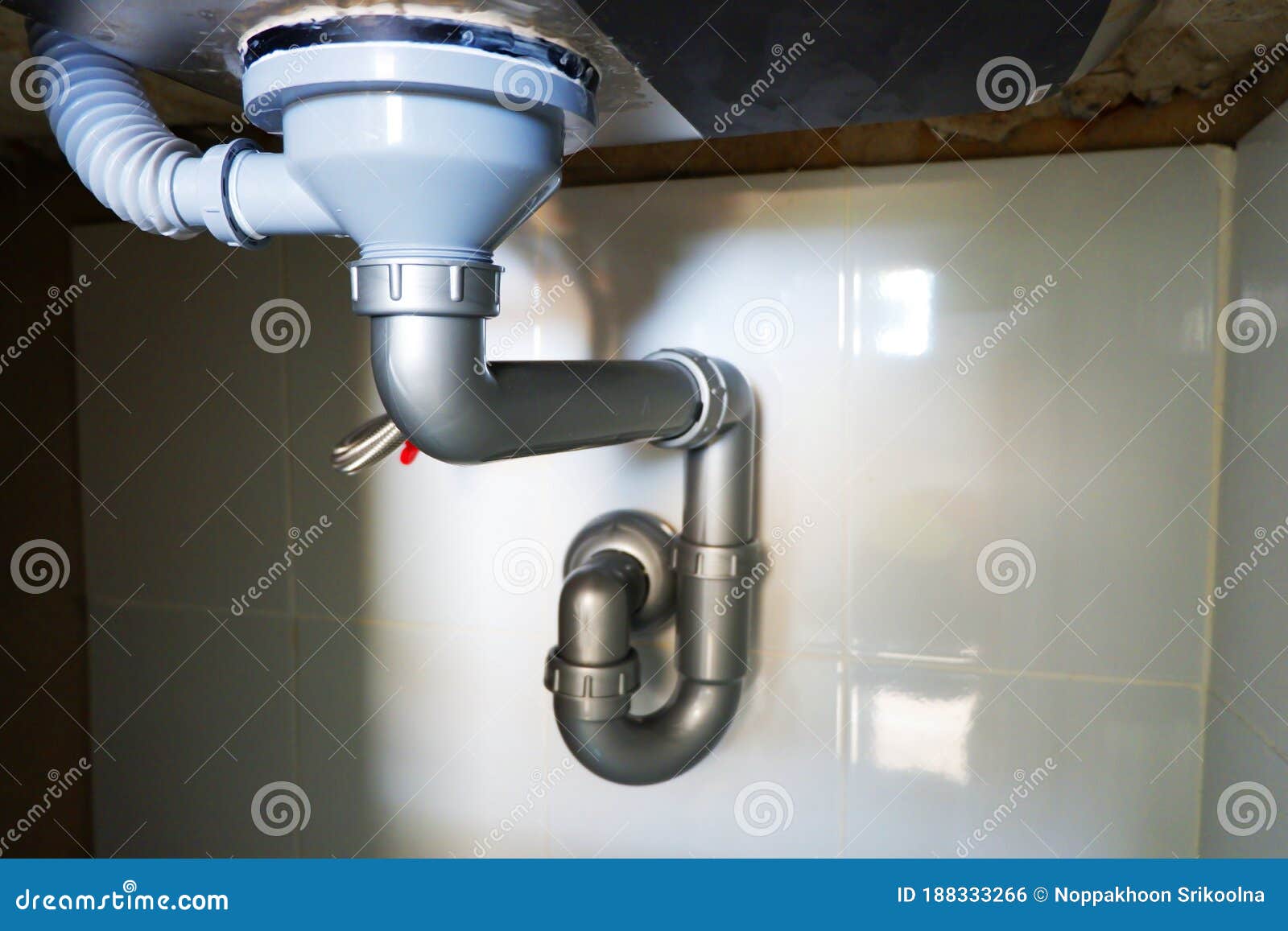
The kitchen sink is an essential component of any household, used for washing dishes, preparing food, and disposing of liquids. However, what happens when the sink starts to emit a foul smell or worse, backs up with sewer water? This is a common problem that many homeowners face, and it can be both unpleasant and unsanitary. In this article, we will discuss the main cause of sewer water in kitchen sinks and how to fix it.
Main Cause: Clogged Drain
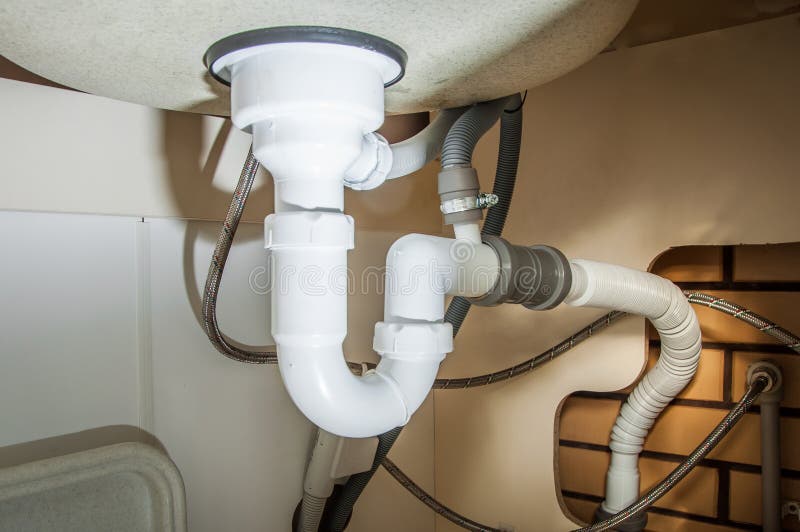
The most common cause of sewer water in kitchen sinks is a clogged drain. Over time, food particles, grease, and other debris can accumulate in the sink drain and cause a blockage. This prevents water from flowing freely and can lead to backups of sewer water. Clogs can also occur in the main sewer line that connects to your kitchen sink, causing water to back up into the sink and potentially other areas of your home.
How to Fix It
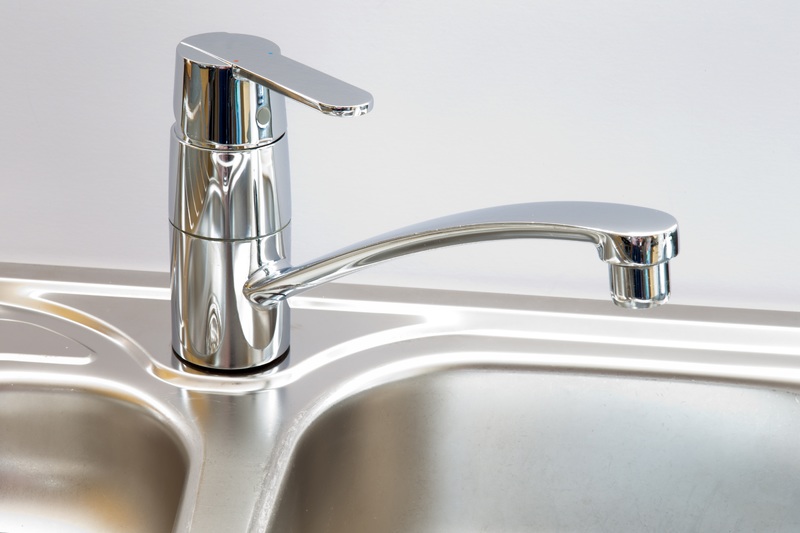
The first step in fixing a clogged drain is to identify the location of the clog. If the water is only backing up in the kitchen sink, then the clog is likely in the sink drain. You can try using a plunger or a drain snake to clear the blockage. If the water is backing up in multiple drains, then the clog may be in the main sewer line, and it is best to call a professional plumber to resolve the issue.
Prevent future clogs by being mindful of what goes down your kitchen sink. Avoid pouring grease and oil down the drain, as they can solidify and cause blockages. Also, use a drain cover to catch food particles and regularly clean it out.
Other Possible Causes

In some cases, sewer water in a kitchen sink can be caused by other issues such as a damaged sewer line or a malfunctioning septic system. These issues require professional assistance and should not be ignored. It is essential to address these problems promptly to avoid further damage and potential health hazards.
In conclusion, a clogged drain is the main cause of sewer water in kitchen sinks. Regular maintenance and proper disposal of waste can help prevent clogs and keep your kitchen sink functioning properly. However, if you experience persistent sewer water backups, it is best to seek professional help to identify and resolve the underlying issue.
HTML code:Causes of sewer water in kitchen sink and How to Fix It
:max_bytes(150000):strip_icc()/water-overflowing-in-kitchen-sink-200553937-001-5797e6335f9b58461f5a6736.jpg)
The kitchen sink is an essential component of any household, used for washing dishes, preparing food, and disposing of liquids. However, what happens when the sink starts to emit a foul smell or worse, backs up with sewer water? This is a common problem that many homeowners face, and it can be both unpleasant and unsanitary. In this article, we will discuss the main cause of sewer water in kitchen sinks and how to fix it.
Main Cause: Clogged Drain

The most common cause of sewer water in kitchen sinks is a clogged drain. Over time, food particles, grease, and other debris can accumulate in the sink drain and cause a blockage. This prevents water from flowing freely and can lead to backups of sewer water. Clogs can also occur in the main sewer line that connects to your kitchen sink, causing water to back up into the sink and potentially other areas of your home.
How to Fix It

The first step in fixing a clogged drain is to identify the location of the clog. If the water is only backing up in the kitchen sink, then the clog is likely in the sink drain. You can try using a plunger or a drain snake to clear the blockage. If the water is backing up in multiple drains, then the clog may be in the main sewer line, and it is best to call a professional plumber to resolve the issue.
Prevent future clogs by being mindful of what goes down your kitchen sink. Avoid pouring grease and oil down the drain, as they can solidify and cause blockages. Also, use a drain cover to catch food particles and regularly clean it out.
Other Possible Causes

In some cases, sewer water in a kitchen sink can be caused by other issues such as a damaged sewer line or a malfunctioning septic system. These issues require professional assistance and should not be ignored. It is essential to address these problems promptly to avoid further damage and potential health hazards.
In conclusion, a clogged drain is the main cause





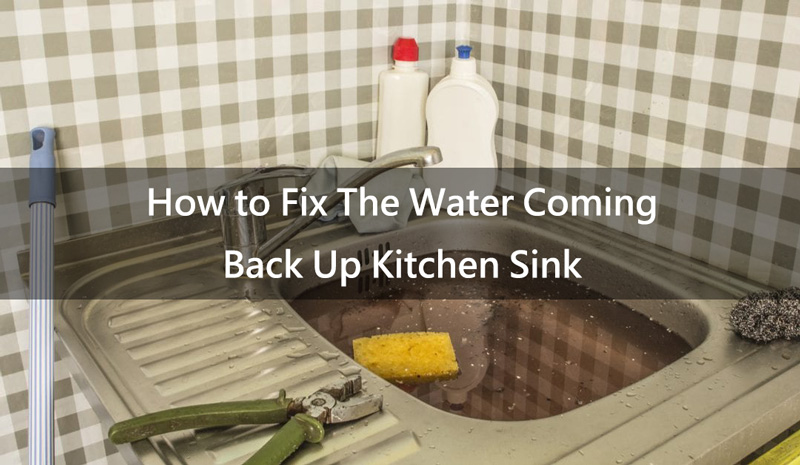





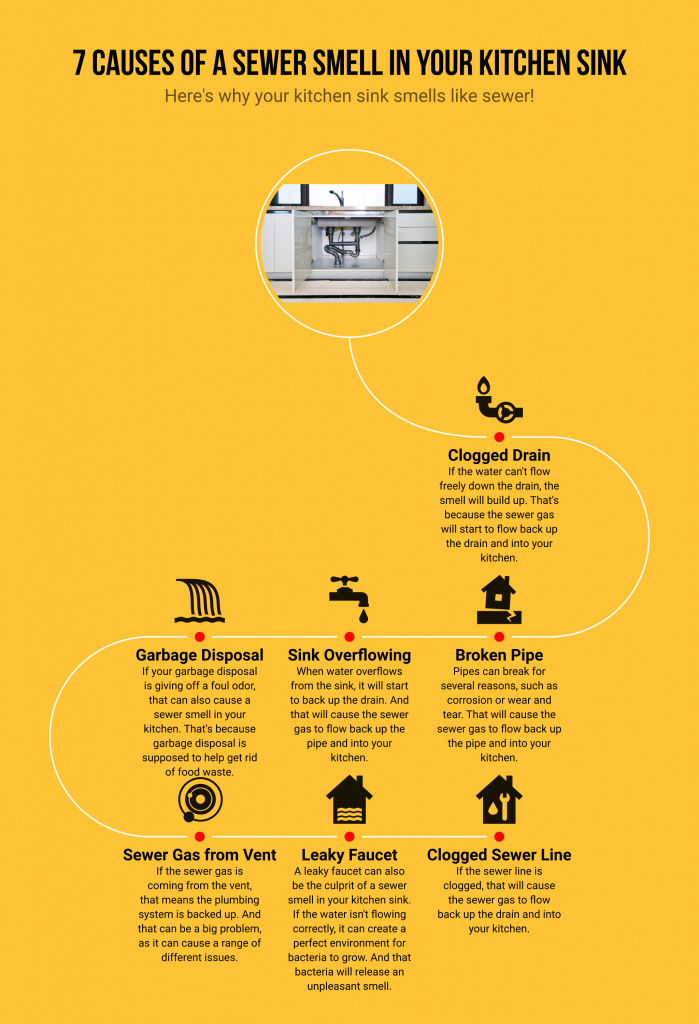




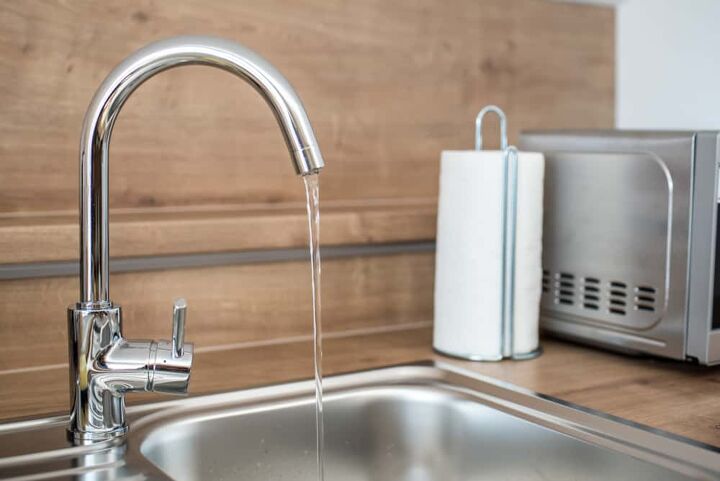
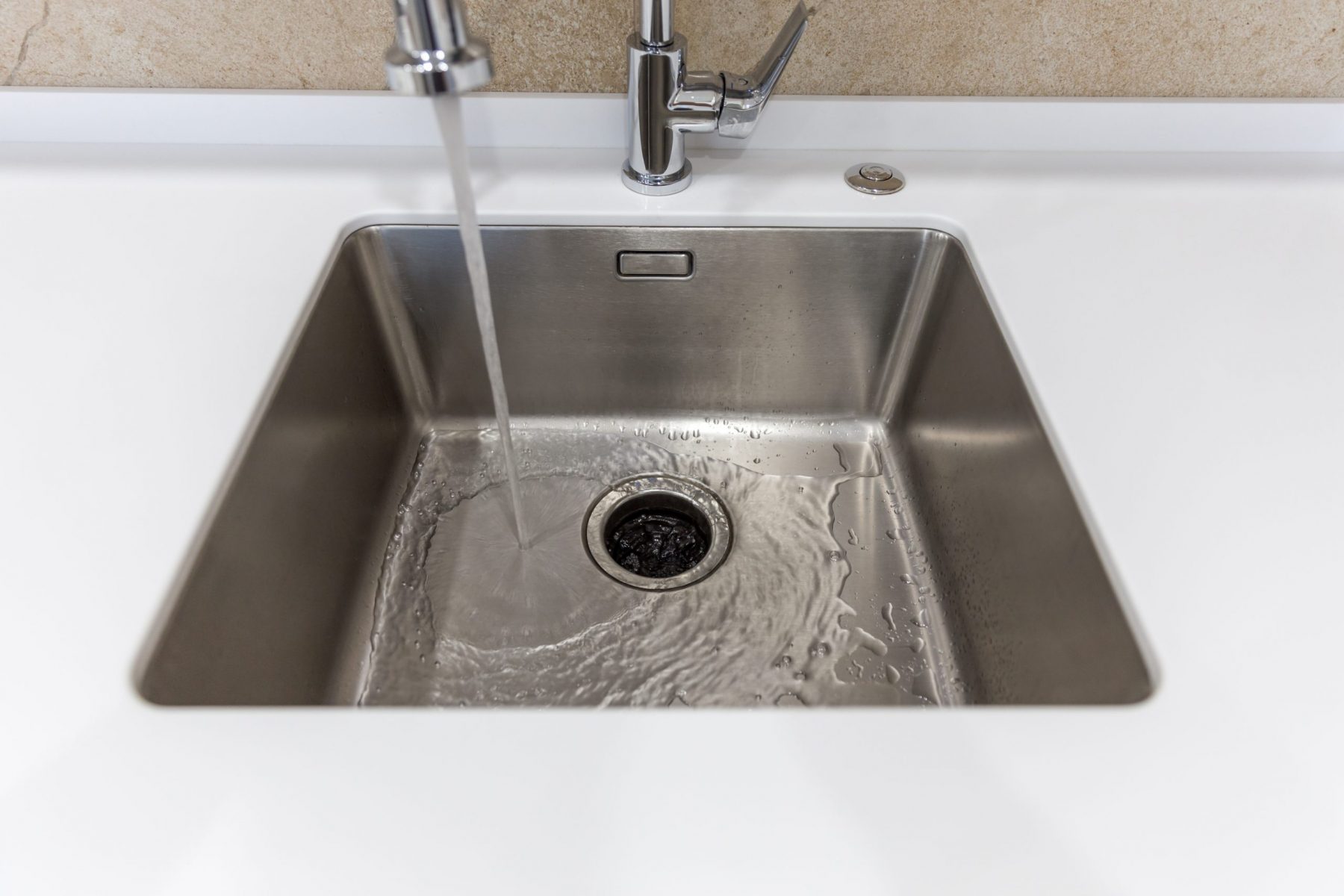
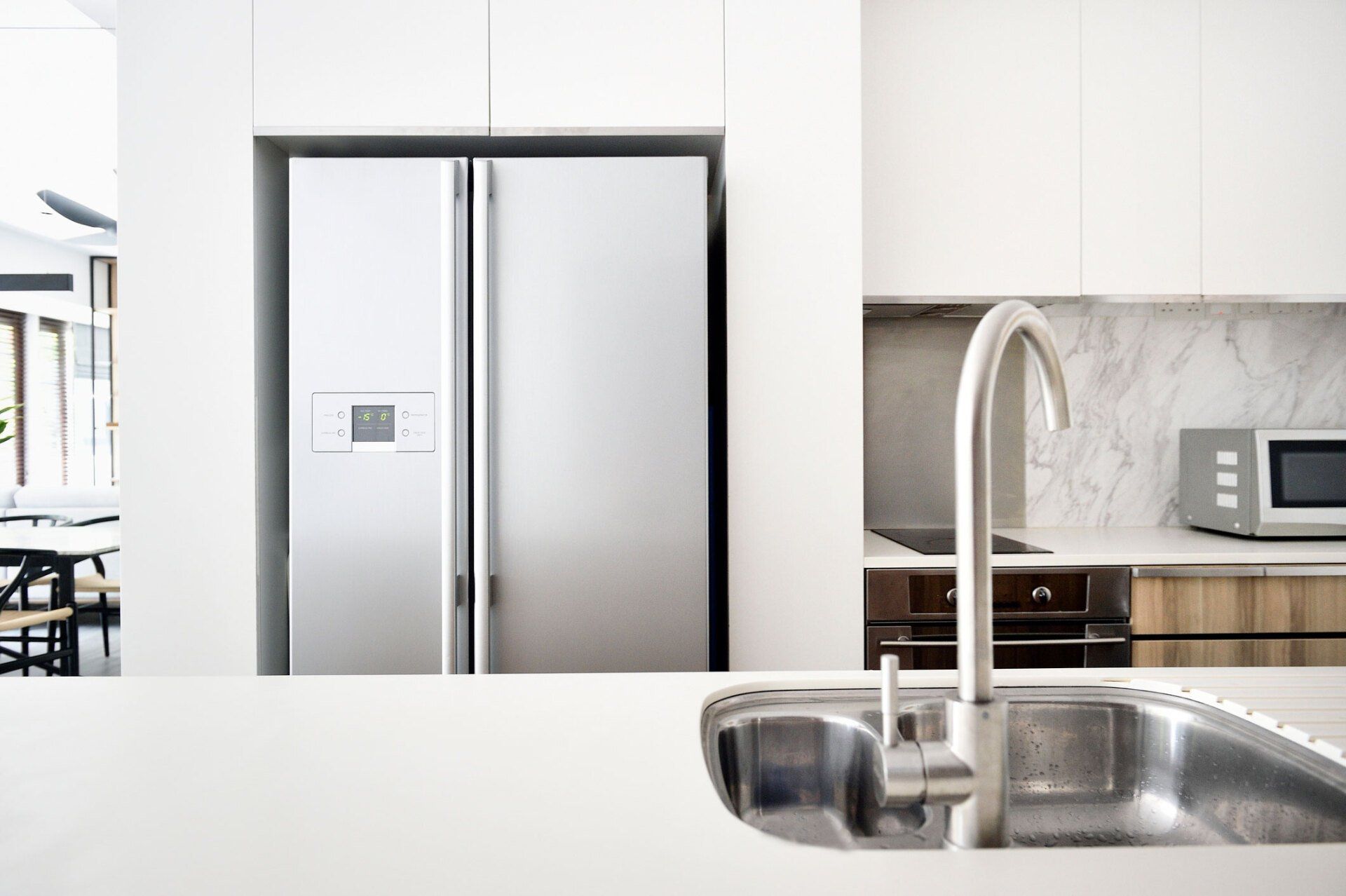
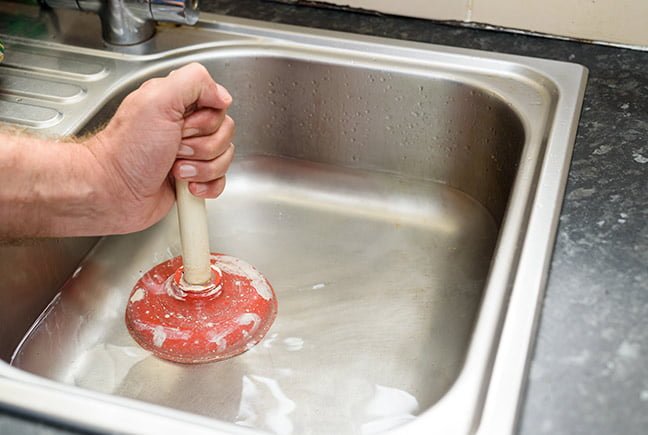
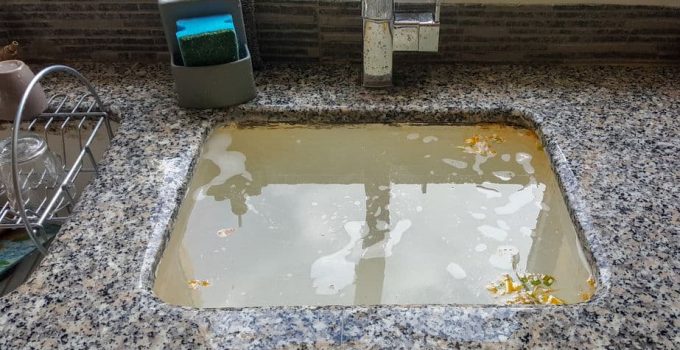






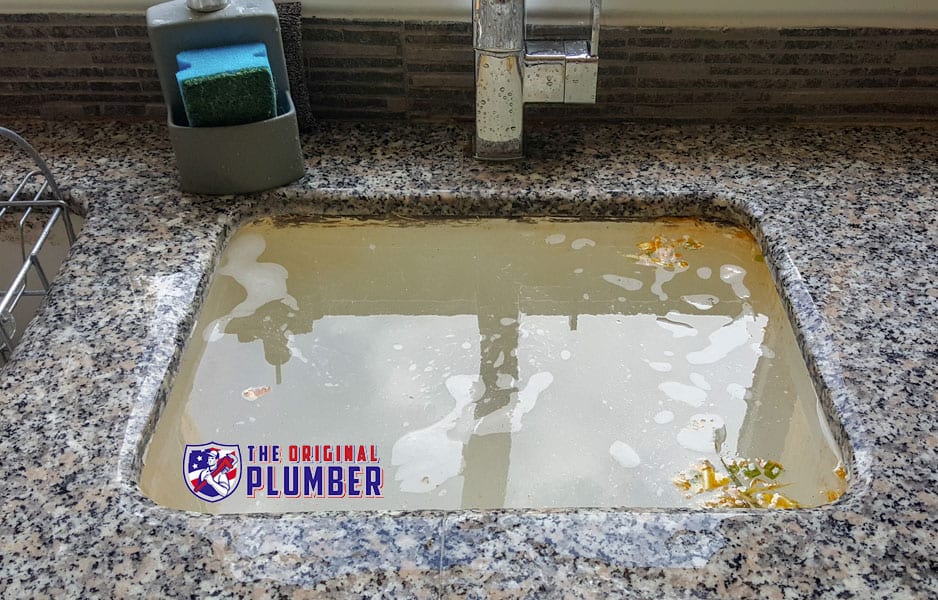





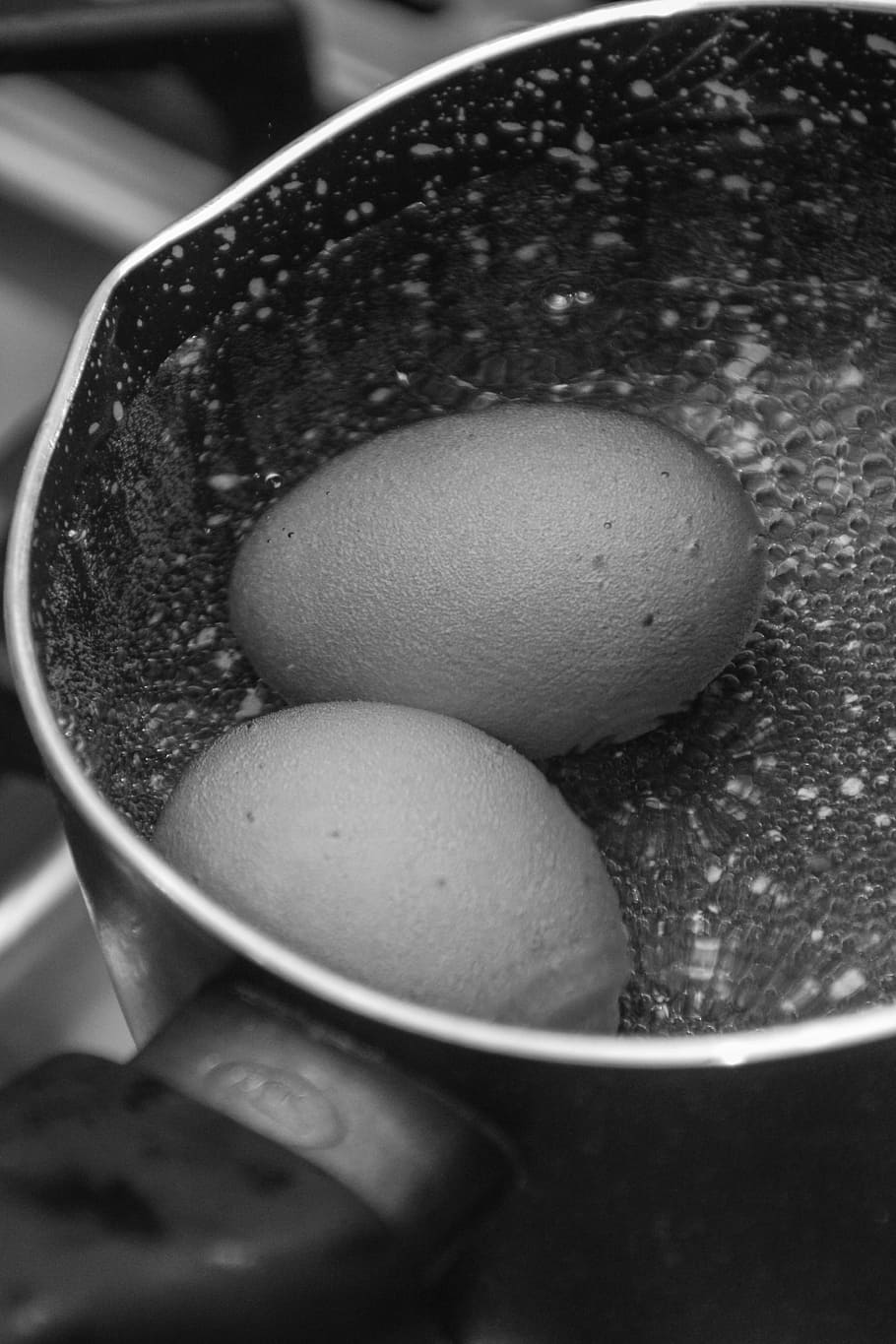



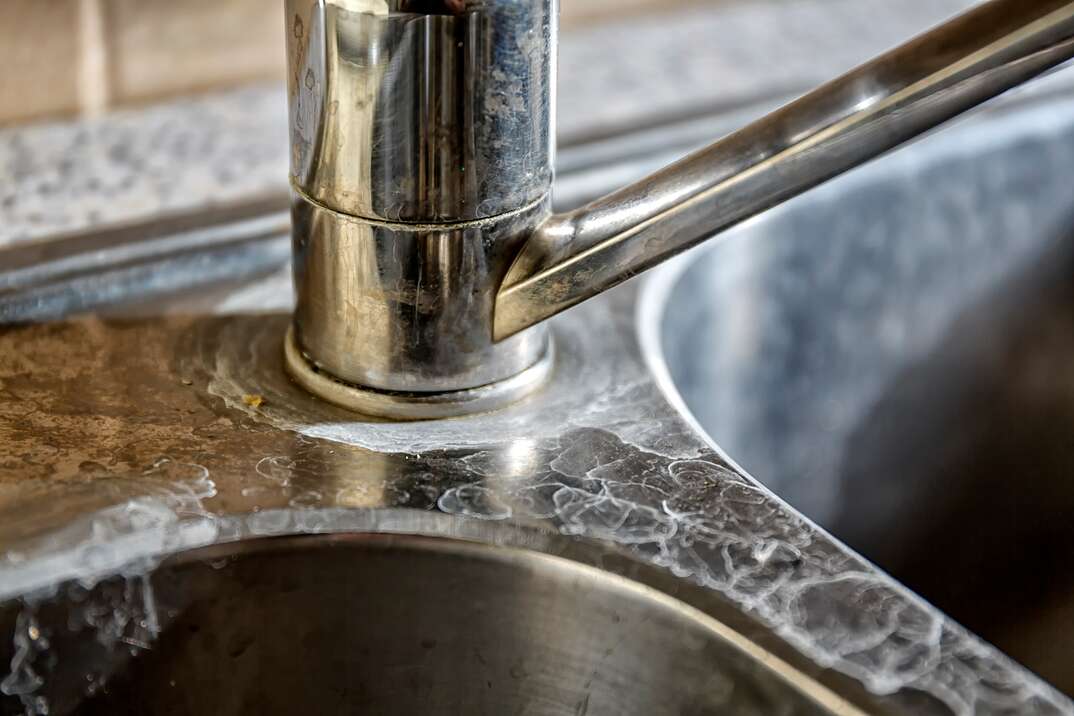
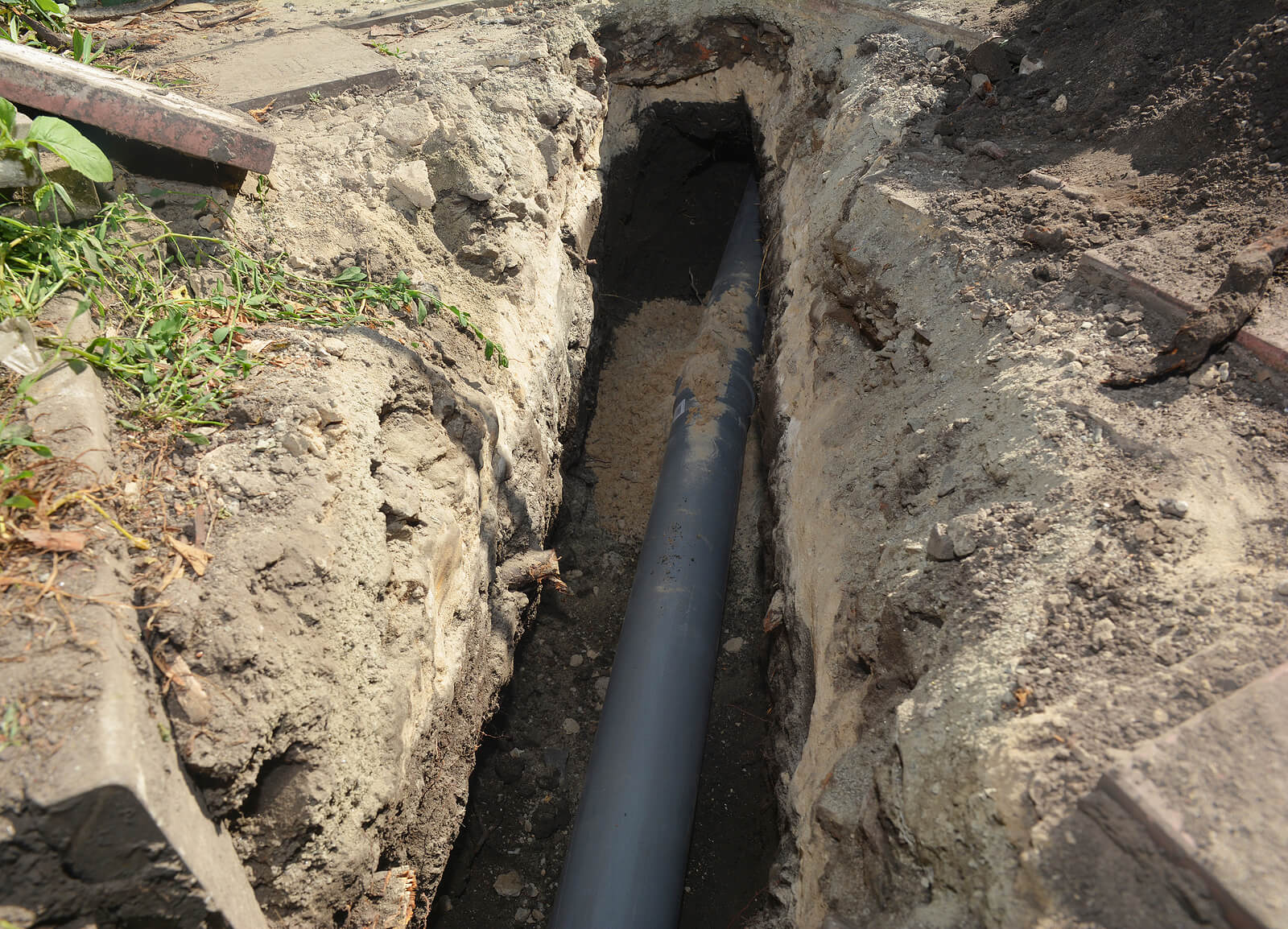
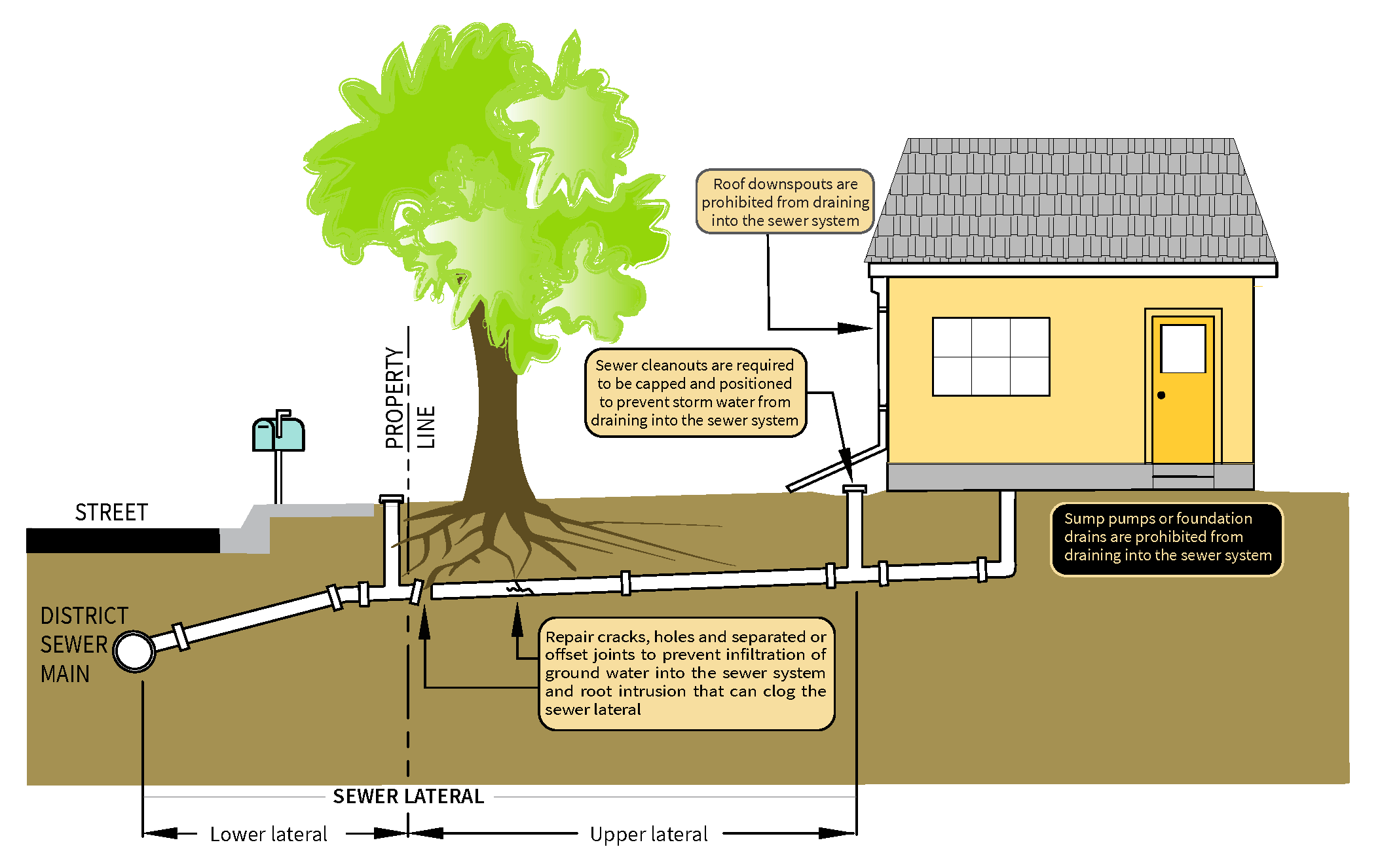












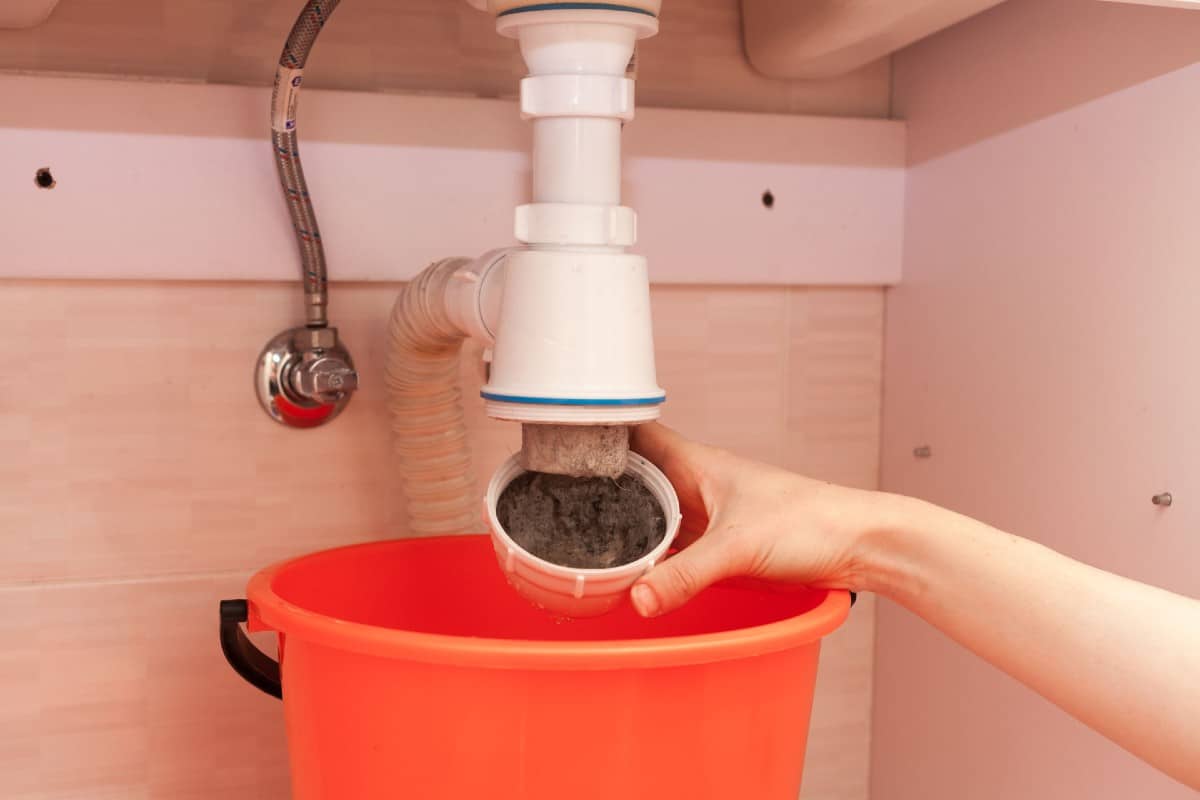








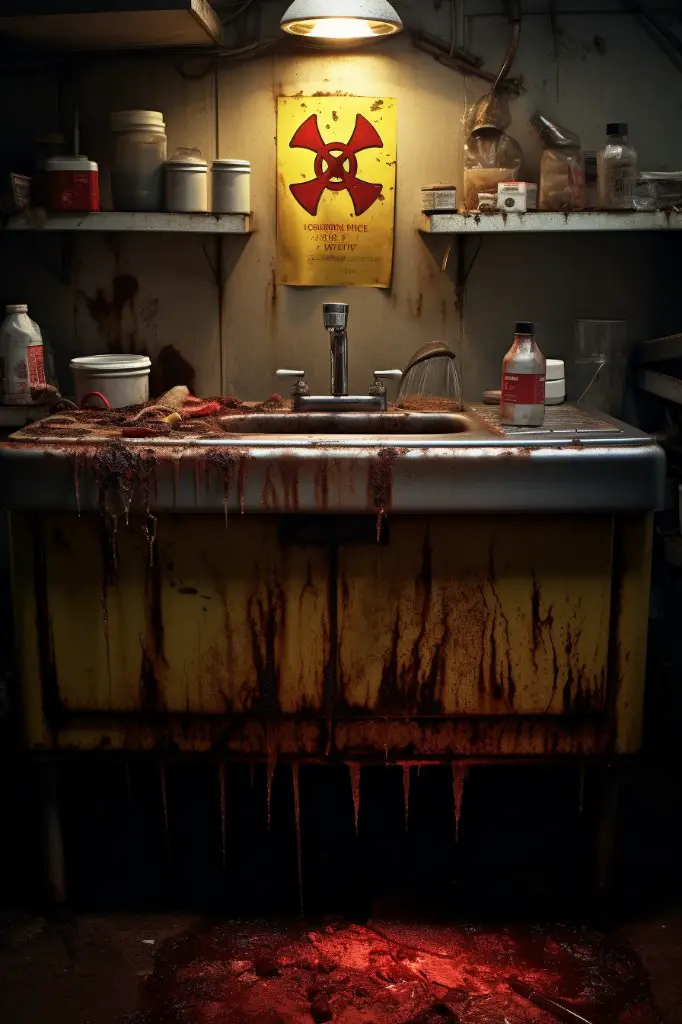

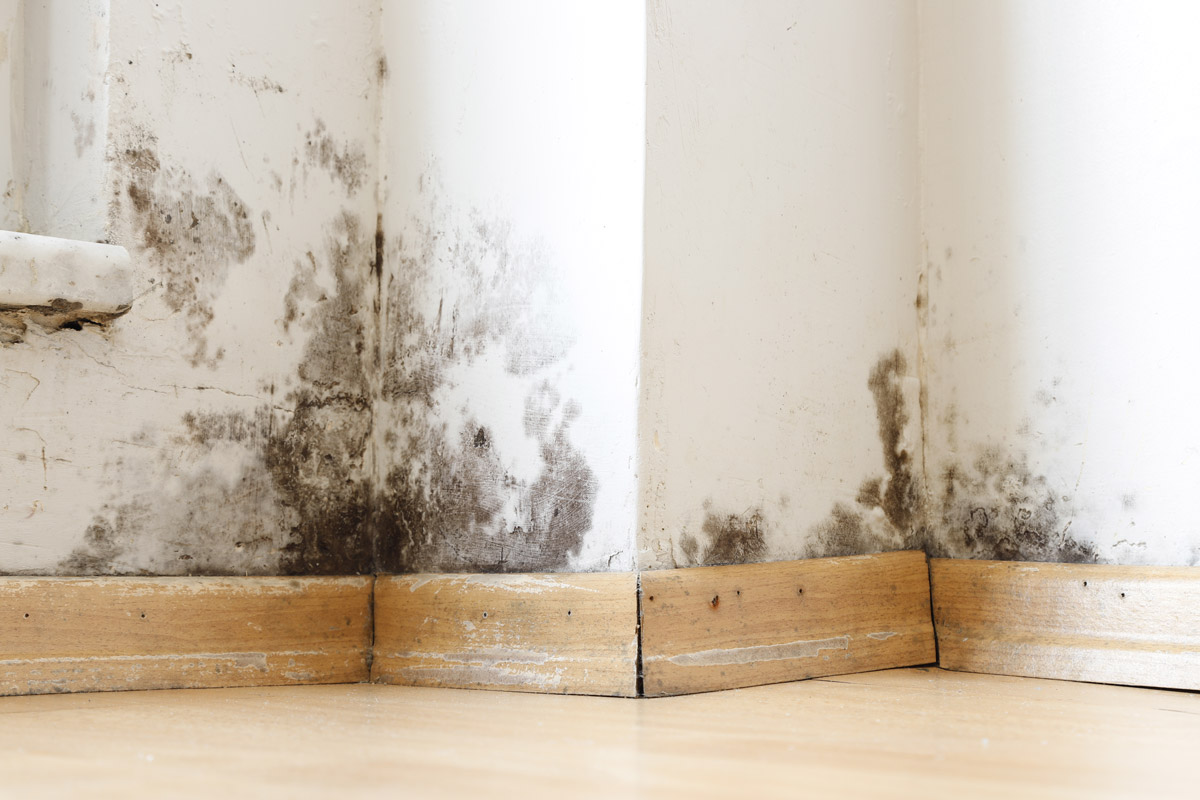



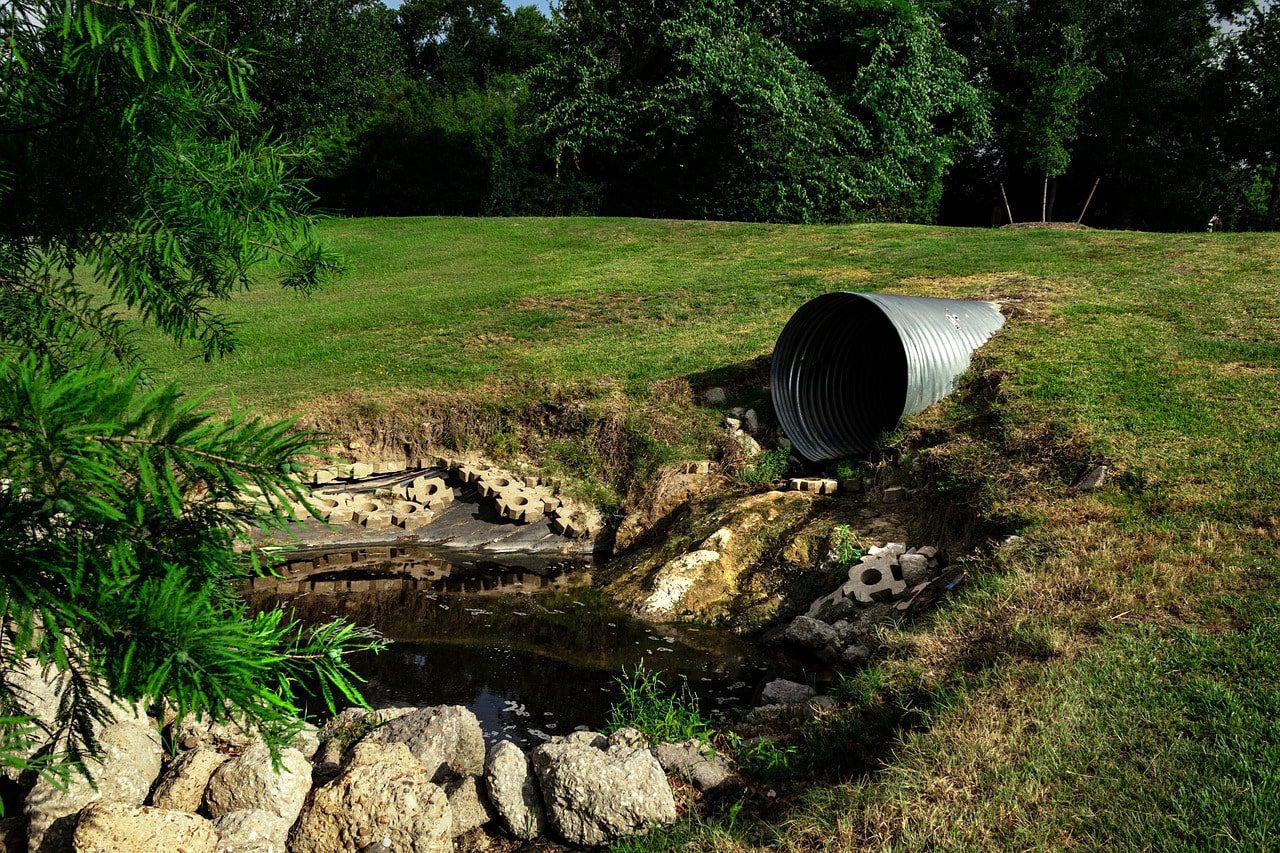


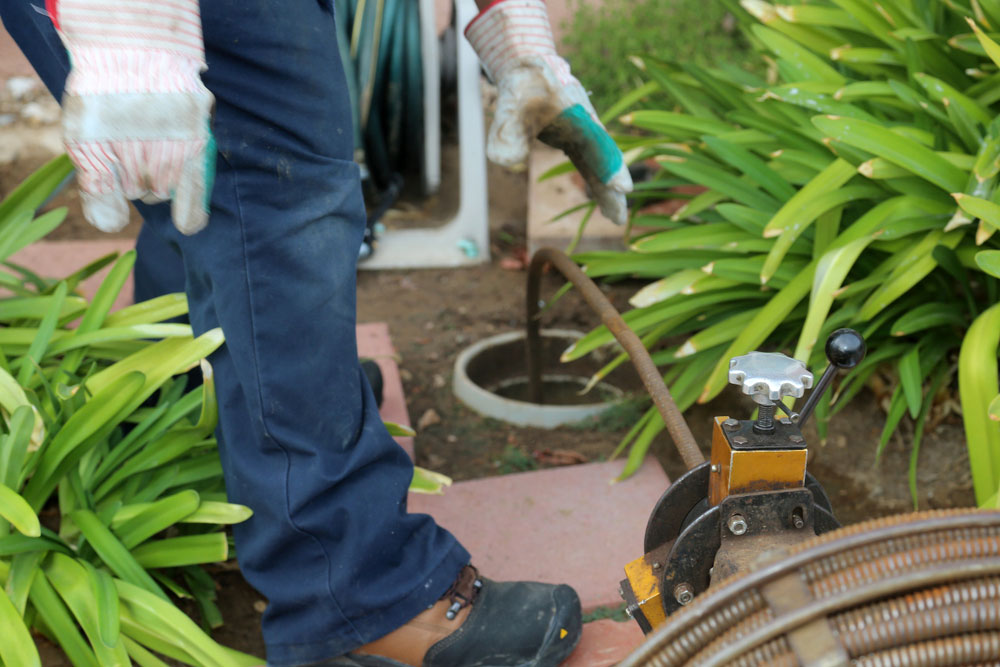

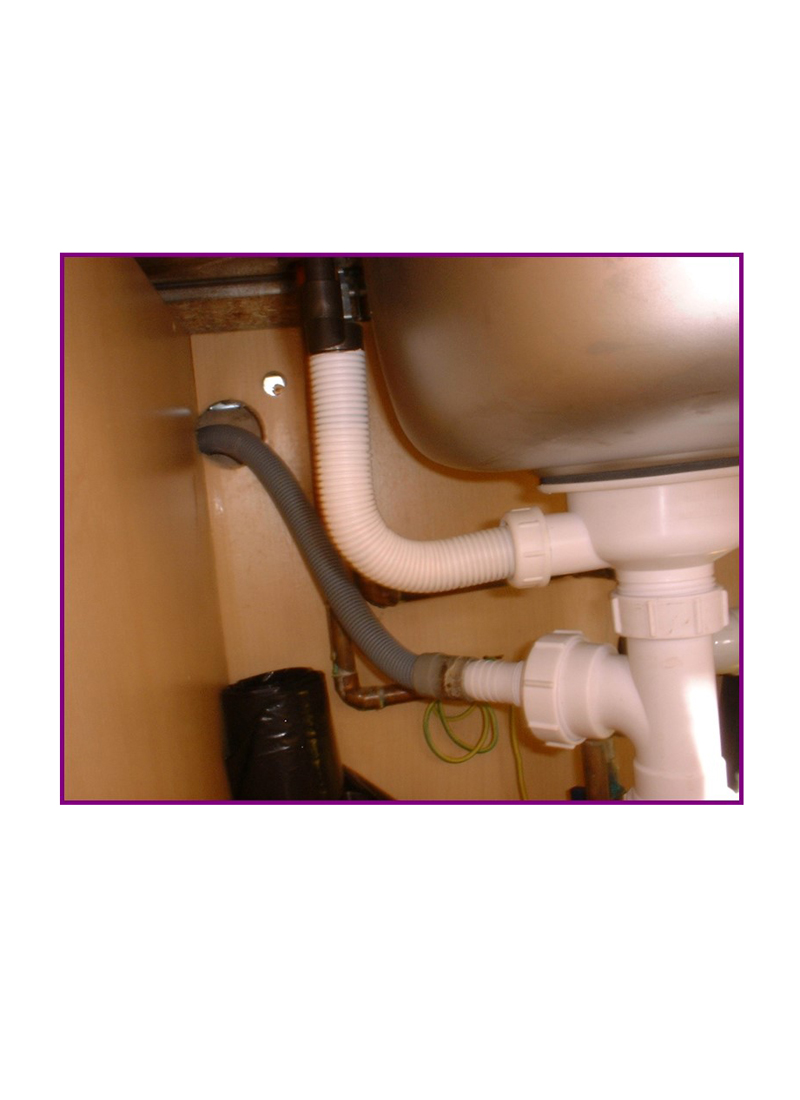




/signs-of-a-sewer-drain-clog-2718943_FINAL-7306dab348804135897b63a4411cdfdf.png)

